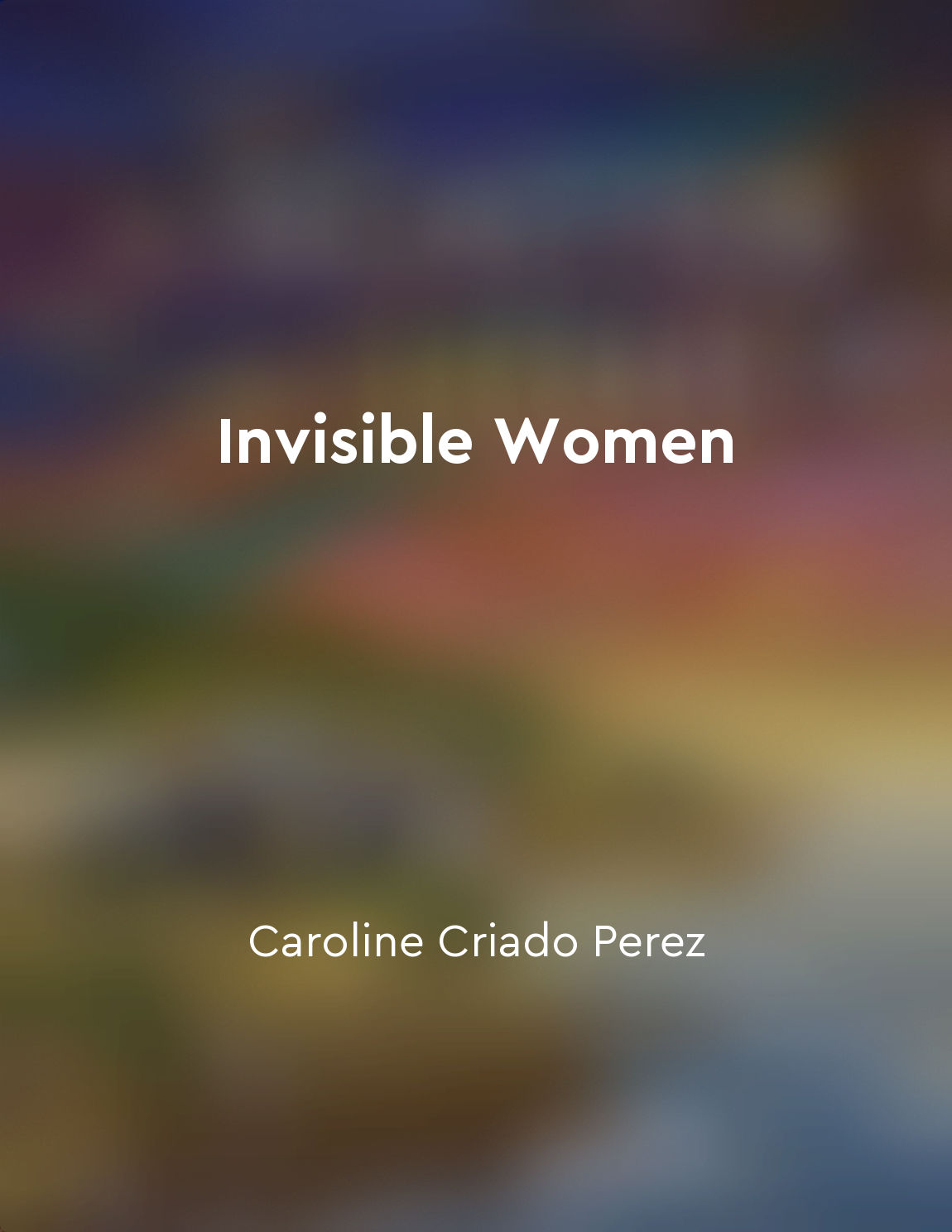The default human is male from "summary" of Invisible Women by Caroline Criado Perez
The default human is not a woman. The default human is a man. This might seem like a trivial distinction, but it has far-reaching consequences. When we think about the average person, the unmarked, neutral human being, we automatically picture a man. This unconscious bias shapes our world in ways we don't even realize. From the design of smartphones that are too big for the average woman's hand to the temperature settings in offices that are based on men's metabolic rates, the default male has become the standard for everything. This male default extends beyond physical products and into data collection and analysis. When researchers fail to disaggregate data by sex, assuming that what works for men will work for women too, they are perpetuating the myth of the default man. This leads to serious gaps in knowledge and understanding of women's lives, as their unique experiences and needs are overlooked. It's not just about equality, it's about accuracy and effectiveness. Ignoring the differences between men and women can have real-life consequences, from medical misdiagnoses to urban planning that neglects women's safety and mobility. The male default also plays out in language and representation. When we use words like "mankind" or "man-made" to refer to all of humanity or human-made objects, we are reinforcing the idea that men are the norm. This linguistic bias can influence how we perceive the world and our place in it. It's a subtle form of sexism that is so ingrained in our culture that we often don't even notice it. But once we start paying attention, we can see how pervasive and damaging it is. Recognizing the default male as a social construct rather than a biological fact is the first step towards challenging and changing it. We need to actively question and challenge the assumption that men are the default human, and start designing products, policies, and systems that take women into account. It's not about excluding men, it's about including everyone. Only by acknowledging and addressing the invisible women who have been left out of the picture can we create a more equitable and just society.Similar Posts
Environmental factors can impact the expression of sex differences
Environmental factors play a crucial role in shaping the expression of sex differences. These factors can include cultural norm...
Women gravitate towards social interactions
It's a well-known fact that women are natural communicators and nurturers. From an early age, girls tend to form close bonds wi...
Women are objectified and commodified in the pursuit of beauty
In our society, women are constantly bombarded with messages that tell them their worth lies in their appearance. From a young ...

Women experience adverse health effects due to gender data gaps
The failure to account for women in medical research has had dire consequences. For example, heart attacks are often misdiagnos...
Prejudice against women hinders progress
The belief in the inferiority of women is deeply ingrained in society, hindering their ability to progress and reach their full...
Feminism is not a radical idea
Feminism is not a radical idea. It is not an idea that should incite fear or provoke outrage. It is simply the belief in the so...
